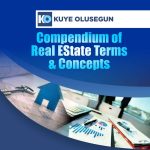There is a need for professional ethics and code of conduct for Estate Surveyors and Valuers so as to guide the discharge of services to the general public as well as to curb any unethical behaviour. Consequently, the regulating body, the Estate Surveyors and Valuers Registration Board of Nigeria (ESVARBON), has provided Rules and Regulations that will guide the conduct of regulators/operators Ethics is generally believed to refer to a well-based standard of right and wrong that prescribe what humans ought to do, usually in terms of right and the obligation to refrain from bad acts such as fraud, stealing, assault, etc. Estate surveying and valuation profession is one that has high public demand, which therefore subjects Estate Surveyors and Valuers to pressure from the general public to render quality of professional practices and services. Hence, ESVARBON has provided a code of conduct for Estate Surveyors and Valuers to guide them in the course of discharging their professional duties to the general public.
Below are some of the codes of conduct/ethic as made, and issued by ESVARBON:
In pursuance of the functions of the Board as laid down in section 2(d) and the powers conferred on the Minister by Section 18 of Decree No. 24 of 1975, now CAP E13, LFN, 2007, the following rules and regulations shall apply to any person carrying on the practice of Estate Surveying and Valuation in Nigeria.
- No Estate Surveyor and Valuer shall be connected in any way with any occupation or business which in the opinion of the Board is incompatible with his professional status as an Estate Surveyor and Valuer.
- It shall be the duty of every Estate Surveyor and Valuer
- When acting for a client whose interests conflict or may conflict with his own to disclose the relevant facts to his client
- To ensure that neither he personally nor any firm or company carrying on practice as Estate Surveyors and Valuers of which he is a partner or Director acts for two or more parties with conflicting interests without disclosing the relevant facts to those parties.
- No Estate Surveyor and Valuer who is a partner in a firm or a Director of a Company carrying on practice as Estate Surveyors and Valuers shall have as a partner in such a firm or as a Director or Shareholder of such a Company any person or body whose interest therein is held wholly or mainly as an investment.
- Estate Surveyors and Valuers shall not be involved in any activity, which causes improper behaviour and conflict of interest (between themselves and the Board (Section 31) or amongst themselves)
- Every Estate Surveyor and Valuer who is sole principal of a practice or a partner in a firm or a Director of a Company carrying on practice as Estate Surveyors and Valuers shall be held responsible for any contravention of these regulations committed by any other partner or Director or by any member of the staff of such practice, firm or Company.
- No Estate Surveyor and Valuer shall in his professional capacity accept otherwise than for the benefit of the client any trade or other commercial discount or commission from any person whose business consists in the provision of goods or services used in the building construction or building maintenance industries
- Without prejudice to the provisions of Section 28 of these rules and regulations no Estate Surveyors and Valuer shall solicit instructions for work in any manner whatsoever, provided that this rule shall not apply in the case of a general information about the firm or organisation in question and not related to canvassing for any specific job.
- No Estate Surveyor and Valuer shall directly or indirectly encroach upon the professional employment of another Estate Surveyor and Valuer or deal with client of another Estate Surveyor ad Valuer of which he had prior notice of on the same professional matter without clearance from the original Estate Surveyor and Valuer engaged.
- Every Estate Surveyor and Valuer shall:-
- Keep in one or more Bank Accounts, separate from his own, his firm’s or his company’s bank account (as the case may be) any money held by or entrusted to him, his firm or his company in any capacity other than that of beneficial owner;
- Account at the due time for any moneys held as aforesaid (less any agreed deductions therefrom) to the parties entitled thereto.
- No person shall practice Estate Surveying and Valuation under more than one business name.
- Every Estate Surveyor and Valuer shall ensure that the form, content and method of publication and distribution of any announcement, article, leaflet, brochure or other publicity material of any kind whatsoever published, issued or authorized by him are in the opinion of the Board neither misleading to the public nor such as to prejudice his professional status or the reputation of the Board or the Institution.
- No Estate Surveyor and Valuer shall buy the property of his client except:-
- He discloses to the client all material fact about the property known to the Estate Surveyor and Valuer; and
- He secures the prior approval of his client
- An Estate Surveyor and Value shall charge his fees in accordance with the current approved scale of professional charges.
- An Estate Surveyor and Valuer shall not when offering property to a prospective purchase or lessee on behalf of a client, stipulate that he be retained by the purchaser or lessee in any capacity
- Save as regards tenancies for terms not exceeding three years and in the case of sales by auction or tender, an Estate Surveyor and Valuer shall not:-
- Draw up or prepare for fee, gain or reward any contract or document purporting to be a contract for the sale or letting of land or building
- Present to any person for signature a contract or document purporting to be a contract for the sale of or letting of land or building without pointing out to that person the desirability of taking legal advice
- An Estate Surveyor and Valuer shall solicit instruction for the sale or letting of landed property provided:-
- He does so by means of a personally addressed letter sent to the owner of the property concerned and not otherwise; and
- The body of such letter includes a statement that, if the recipient has already instructed another Agent, instruction can only be accepted from, and as sub-agent to, or
- The Estate Surveyor and Valuer did not know, and it is deemed to have known that the owner of the property concerned had already instructed another Agent
- No Estate Surveyor and Valuer shall permit more than one TO LET/FOR SALE Board to be displayed on the same property at a time
- An Estate Surveyor and Valuer shall be deemed to have known that another Agent had already been instructed if another Agent’s “For Sale” or “To Let” board was at the material time exhibited on the property or, in other cases if he failed to exercise reasonable care to ascertain the facts
- An Estate Surveyor and Valuer employed by a Limited Liability Company and other organisation of a similar nature not entirely in practice as Estate Surveyors and Valuers shall not:-
- Permit the use of his name and professional designation in brochures issued by his employer in such a manner as to state or imply that Estate Surveying and Valuation services can be provided to the public by the employer
- Permit any claims to provide such services to be made by his employer in any way in such brochures/advertisements for staff, or by any other means:
- Undertake such services to the members of the public for a fee
- An Estate Surveyor and Valuer employed by an organisation shall:-
- Ensure that in all his public and business dealings where his professional designation is used, it shall be made clear that he is a Director or employee of such organisation;
- Not hold himself out to be in professional practice or in a position to give independent advice to private clients on matters of Valuation and Estate Agency
- An Estate surveyor and Valuer may incorporate his name, address and profession (but nothing more) in a postal frank or cover used to send letters or parcels by post
The procedure and discipline of erring members of the NIESV
With regard to the procedure and discipline for erring members of the NIESV, NIESV Constitution provides as follows:
Disciplinary offences – A member shall be liable to discipline if he:
- is convicted for embezzlement, larceny, fraud murder or any other criminal offence
- is guilty of professional misconduct
- violates any of the provisions of the Constitution
- is declared bankrupt by a court of law either as an individual or as a partner in a firm of Estate Surveyors and Valuers
- uses any professional designation or initials to which he is not entitled
- practices as an Estate Surveyor and Valuer in partnership with any person who is not a Corporate Member
- permits any person who is not a Corporate Member to use in conjunction with the title of the member’s firm the designator letters or other description indicating membership of The Institution
- engages in misconduct adjudged by The Council to be inimical to the best interests of The Institution or is capable of tarnishing the image of the Institution.
Disciplinary Powers of The Council – A member who is interdicted by Legal Process other than civil process shall stand suspended until a Certified True Copy of Certificate of discharge or discharge and acquitted is produced and accepted by the Institution provided that the interdiction shall not prevent such person from practice but shall have a minimum dealings with the Institution
1. The Council shall have the power to inquire into any alleged act of indiscipline or professional misconduct by a member and shall after a simple majority vote of those present and voting at a meeting of The Council resolve to discipline such a member if found guilty.
2. The Council shall have the power to impose any or all of the following penalties on a member found guilty of any act of indiscipline or professional misconduct, namely;
- To reprimand the member
- To suspend the member for such period and on such terms and conditions as The Council may prescribe and such suspension shall operate as a bar to practice the profession for the period of suspension
- To expel the member from The Institution and to recommend to the Board the removal of the name of the member from the Register of Estate Surveyors and Valuers and
- To impose on the member a fine or other sanction commensurate with the offence
3. Member firms may be required by Council to show evidence of compliance with the Institution’s accounting regulations.
Disciplinary Procedure
- Upon the receipt by The Council of a report or petition of an act of indiscipline or professional misconduct against a member, the Council shall refer the report or petition to the Professional Practice Committee to inquire into the allegation in all its ramifications.
- Upon the conclusion of its inquiry, the Professional Practice Committee shall submit its report and recommendations to The Council
- After considering the report of the Professional Practice Committee, the Council shall have the power to accept, modify or ratify in part or in full the recommendations of the Committee, provided that the decision of the Council, which shall be final for the purpose of the Institution, is in accordance with section 69 (b) of this Constitution.



